Milk Packets to Broken Furniture: Teacher Used Them All to Create an Incredible Sustainable School
C M Nagaraja, a school teacher from Bengaluru’s Government High School Doddabanahalli, was felicitated with the National Awards for Teachers for introducing eco-conscious initiatives through his teachings.
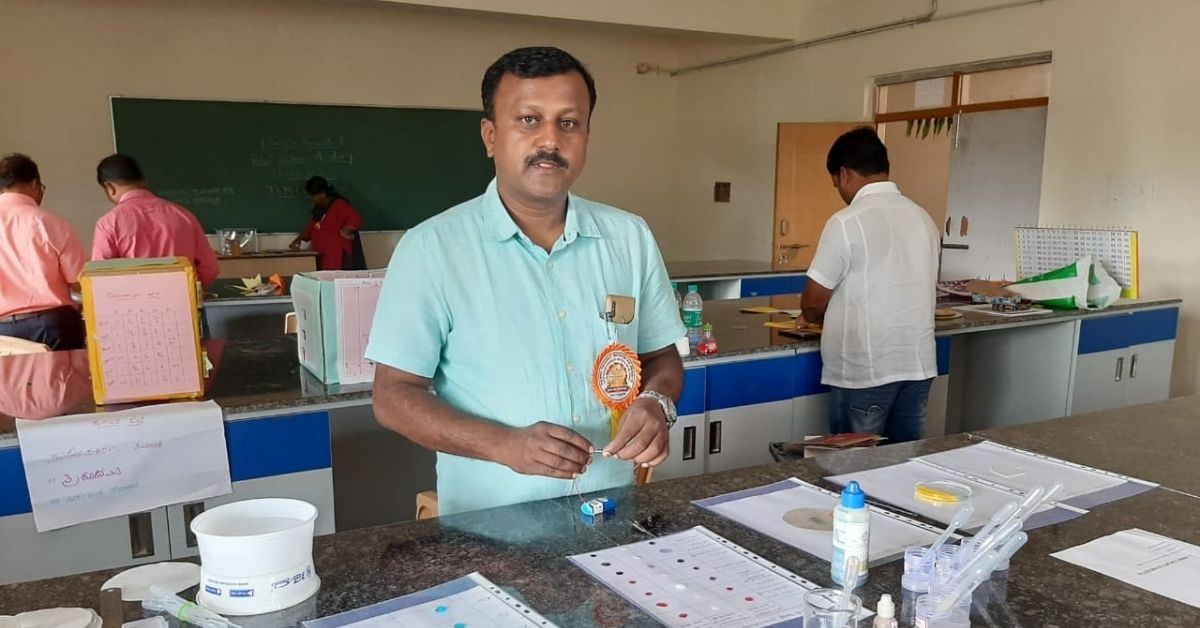
Teaching kids to count is fine, but teaching them what counts is best. – Bob Talbert
One person who has followed this lesson to the ‘T’ is C M Nagaraja, a school teacher from Bengaluru. Although he teaches science to students of Class 8, 9 and 10, he has gone beyond his call of duty to inculcate healthy lifestyle changes in his teachings.
For the same, he was felicitated with the National Awards for Teachers (NAT) on Teacher’s Day (September 5) this year and his school, Government High School Doddabanahalli, was given a special mention.
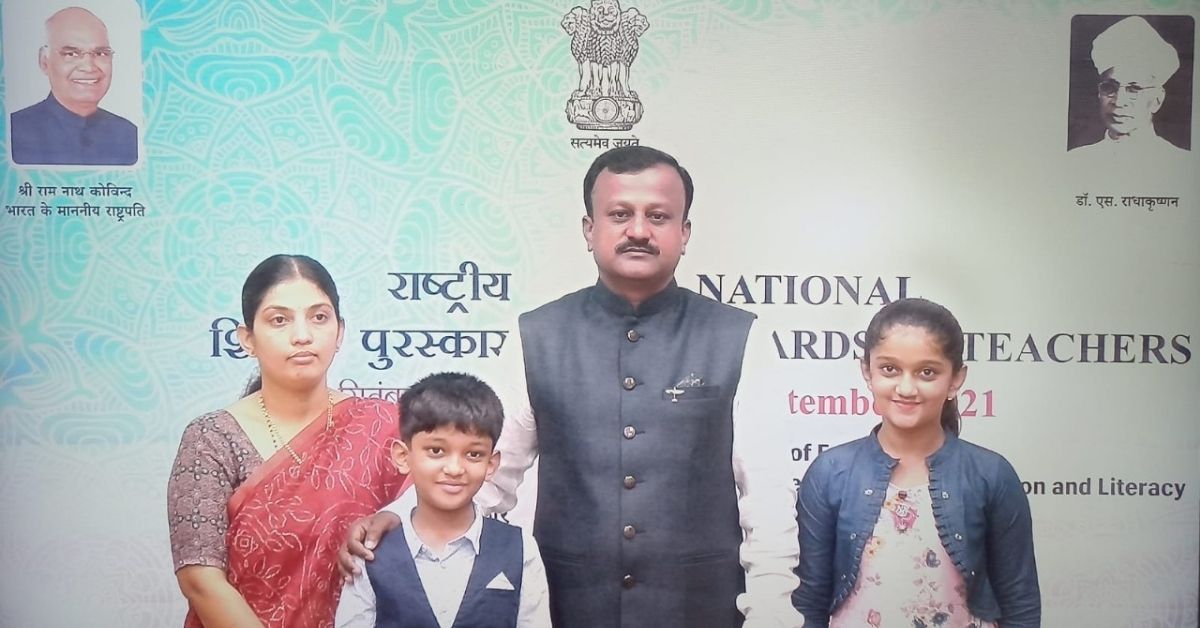
Nagaraja was awarded for introducing eco-conscious initiatives to throw light on the magnitude of global warming and climate crisis. The Ministry of Education also highlighted his innovative methods to science.
“In my 15 years of teaching, I always tried to make the subject interesting and fun,” Nagaraja tells The Better India.
Sustainable Hacks That Impressed All
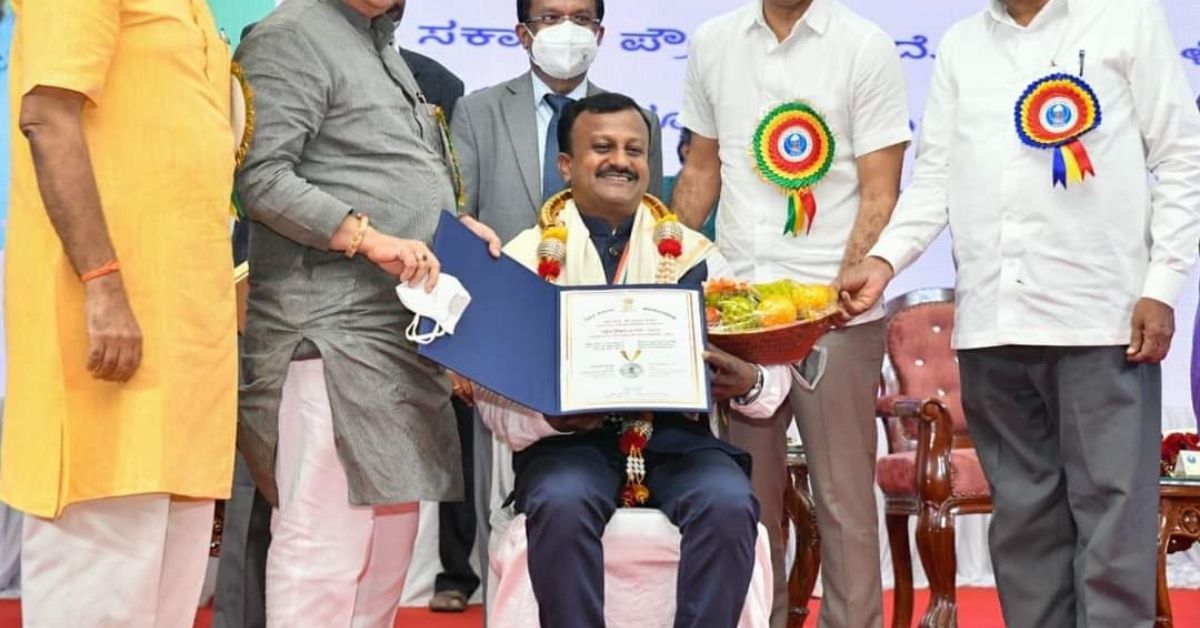
Having led an eco-friendly lifestyle, introducing such practices to others was not as challenging as getting funds to execute the same.
Nagaraja joined the school in 2018, and initially his ideas were met with enthusiasm but due to lack of funds, his project was delayed. So, he did the next best thing – approached NGOs in the city.
Simultaneously, he worked on kick starting a waste management programme. He repurposed the old and broken metal-based furniture, including chairs and tables, and converted around 20 broken pieces into newspaper reading stands, a projector screen, dias, podium, name plates and cupboards for the teaching staff.
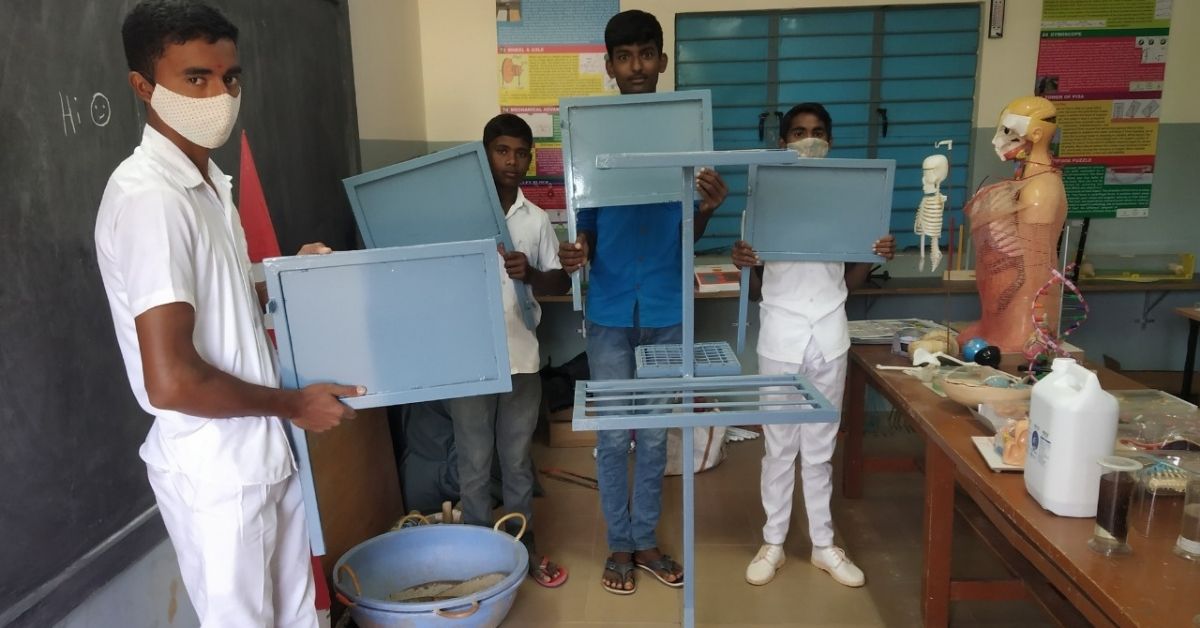
Discarded milk pouches were another eyesore.
“We serve milk to our students as part of the mid-day meals scheme. But the 1-2 litre pouches are carelessly thrown in the compound. I gathered 2-3 parents of our students who are tailors and came up with a plan,” says Nagaraja.

A few weeks later, 20 computer systems in school were adorned with new stylish covers that were made by upcycling the discarded milk pouches.
Seeing these initiatives, five NGOs came on board to scale Nagaraja’s endeavours.
The first thing he did was purchase two bio-waste converters and bins for paper and plastic waste.
“One converter is for biowaste like leaves and agri-waste that we collect from nearby farms and the other is for food waste generated in the school’s kitchen. In six to eight months, we generated 1 tonne of manure that was used in our one-acre garden. Meanwhile, 58 kilos of plastic and paper waste collected in a year was given to the local recycler,” he adds.
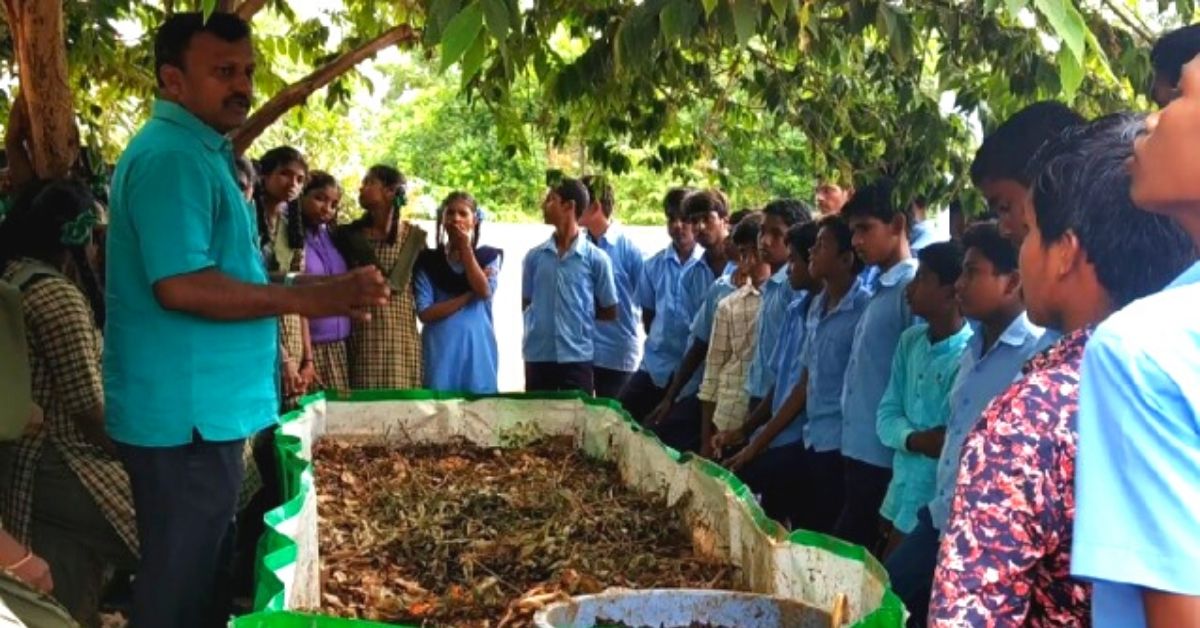
The school has five underground water recharging pits to store rainwater and wastewater that is further reused for non-potable purposes.
The school uses 1,500 litres of water daily to wash utensils and for watering the plants. The wastewater is transported to one of the pits and that is connected to a tank.
“After recharging the pits, the leftover water is percolated into the tank with a capacity of 4,500 litres. It is filled with stones which obstruct the solid waste and purifies the water. We have connected a pump to the tank from where we collect the water every three to four days. It is a well-rounded cycle,” explains Nagaraja. With the help of students, Nagaraja also installed sprinkles for drip irrigation to save more water.
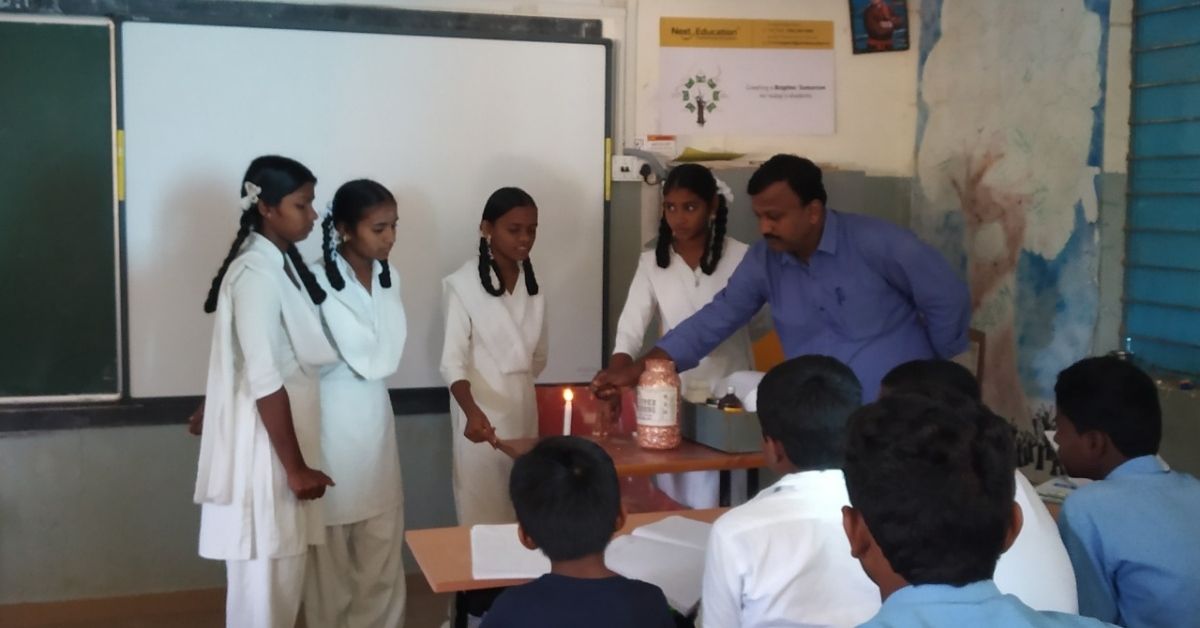
Thanks to the habit of safely disposing and repurposing waste, Nagaraja was able to make a chemistry kit for his students using discarded bottles. He made mini portable kits, which the students use to conduct chemical experiments at home.
Government schools in India generally do not have a very reputable image, however in the last few years we are seeing a shift, thanks to teachers like Nagaraja who work hard to elevate minds, ignite creativity and encourage out-of-the-box thinking among the pupils.
“A child’s interest or disinterest in any field can stem from how that subject was taught. So, it is important to remember that a teacher can create lasting impressions on students,” he concludes.
(Edited by Yoshita Rao)
If you found our stories insightful, informative, or even just enjoyable, we invite you to consider making a voluntary payment to support the work we do at The Better India. Your contribution helps us continue producing quality content that educates, inspires, and drives positive change.
Choose one of the payment options below for your contribution-
By paying for the stories you value, you directly contribute to sustaining our efforts focused on making a difference in the world. Together, let’s ensure that impactful stories continue to be told and shared, enriching lives and communities alike.
Thank you for your support. Here are some frequently asked questions you might find helpful to know why you are contributing?


This story made me
-
97
-
121
-
89
-
167











